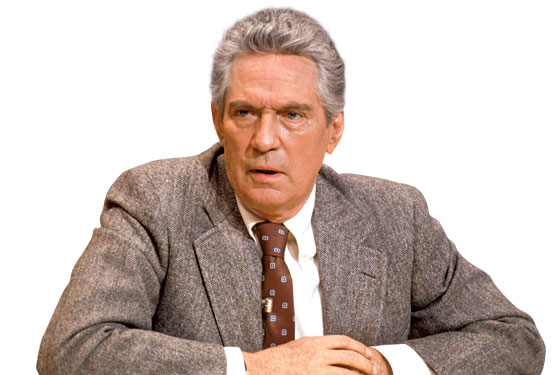
There’s a lot of rage in this country at a lot of things, so much so that newscaster Howard Beale’s cry in the 1976 film Network, “I’m as mad as hell and I’m not going to take this anymore!,” has become a kind of national mantra. (“Yes We Can” didn’t last long.) Tea-party types bellow the line at the nightmarish prospect of the government’s assuming partial responsibility (in lieu of insurance companies) for the state of their health, among other paranoias. Upstate upstart GOP candidate for governor Carl Paladino even kicked off his campaign with the movie clip. As a Times poll pointed out last week, tea partyers tend to be older, whiter, and more well-off than Americans at large; despite all this, or perhaps because of it, they’re far more likely than even run-of-the-mill Republicans to call themselves “angry” at the direction things are going. (Many think “too much has been made of the problems facing black people” of late.)
What screenwriter Paddy Chayefsky meant by this speech, however, is complicated. Most obviously, Beale’s rage is directed against the heartlessness of corporate capitalism after he is dumped from the evening news because of low ratings—a political slant that might come as a surprise to tea partyers. In her scathing New Yorker review at the time, Pauline Kael suggested that viewers’ obedience to Beale’s exhortation to shout out their windows might be (but probably isn’t) a satire on “their sheeplike response to TV.”
In Network, Beale’s mad-as-hellness ends up commodified and used as a ratings draw, not unlike Rush Limbaugh’s dittoheads and Glenn Beck’s popular blubbering on Fox News (according to the Times survey, 63 percent of tea partyers get their TV news mostly from Fox). Beck has actually likened himself to Beale: “And yes, I do wonder every night why you are not out your window just crying out and saying, ‘I’m mad as hell and I’m not going to take it anymore!’ The Dow goes up. The Dow goes down. Today it’s up. Everybody is smiling. Everybody is happy. Great. Maybe I’m wrong. I don’t think I am, but maybe I am. I think people understand that with all of the spending and the uncertainty from government, we are far from standing on solid ground. But the media seems to be painting a picture of anyone who is worried enough to prepare for the future as crazy. Call them crazy. I’m crazy. You’re crazy. We’re all crazy together.”
He’s sad as hell and he’s not going to take this anymore.
It took the late William Safire—who coined Spiro Agnew’s populist rant against the media, the “nattering nabobs of negativism”—to question the tenets of certain kinds of populism. In a 1992 column inspired by Network, he reminded us that mad doesn’t really mean angry, and rage has dark connotations: “It’s from the Latin rabere, ‘to be mad,’ meaning ‘insane’; the root also led to the viral disease rabies, and its adjective rabid.” Indeed, the same year that Network’s “mad prophet of the airwaves” announced that he wasn’t going to take this anymore, Travis Bickle’s taxi driver intoned, in voice-over, “Here is a man who will not take it anymore.” Then he decides to assassinate a presidential candidate. When that proves too challenging, he blows away some pimps and gangsters and becomes a hero for his mad-as-hell age.
Maybe that’s still the age we live in now. In the end, “I’m mad as hell and I’m not going to take this anymore” can relate to anything. It’s mindless, marketable reactionary-speak for “My anger is the only thing keeping me going.” It’s no more specific than its counterculture counterpart, spoken by Marlon Brando in The Wild One. “What are you rebelling against?” “Whaddya got?” Maybe we should merge the two for a new national mantra: “What are you as mad as hell and not going to take anymore about?” “Whaddya got?”
Have good intel? Send tips to intel@nymag.com.
